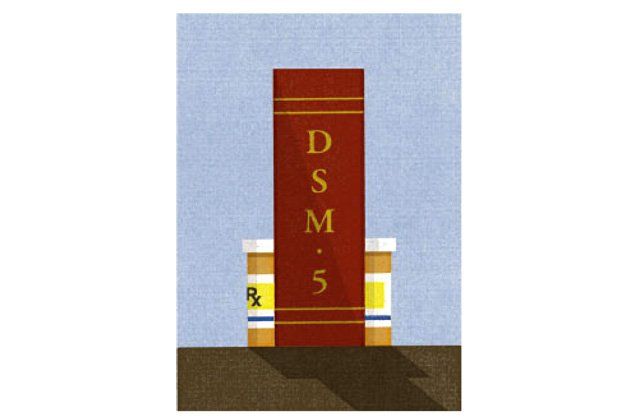
The board of trustees for the American Psychiatric Association just approved version five of the Diagnostic and Statistical Manual of Mental Disorders, known as the DSM. The latest revision was unusually public and came after several years of open disagreement among the country's leading psychiatrists. This drama is perhaps understandable: the shrinks after all were assigned the most unruly task in all of science—to determine what is normal.
Controversy has always surrounded the DSM, which is used as a reference manual to categorize patients. Most famously, the ancient DSM-II had labeled homosexuality as a disorder till public reaction led to its removal in 1973. The circus around DSM-5 however has set a new standard for internecine discord: the lead editors of two previous editions stepped forward with a host of sharp-edged criticisms. Writing last week in Psychology Today, Allen Frances, chair of the DSM-IV task force, wrote that the approval of DMS-5 was "the saddest day" in his long career because it included "changes that seem clearly unsafe and scientifically unsound." He and others lamented what they saw as the pathologization of every human quirk and itch, arguing that DSM had far overstepped its mandate. New diagnoses like binge-eating disorder and hoarding disorder in particular seem to drive many around the bend.
Robert Spitzer, the lead editor for DSM-III, was exercised about a different problem: he went "bonkers" upon learning that the politburo of experts tasked with the main deliberations had signed a promise not to spill any beans about the process—not to colleagues, not to the public, not to the press. Both former editors joined a long list of professionals signing petitions against approval of the document, and both were part of a chorus of peers and the public who worried that the DSM-5 authors were in bed with the pharmaceutical industry. Big Pharma, the claim goes, will not rest until every man, woman, and child in America is given a diagnosis (two would be better) that in turn requires a pill to remedy.
Deciding just what is (and is not) normal is part of the daily routine for all physicians. But in the rest of medicine, they have fancy equipment and objective tests. They have electrocardiograms and X-rays and a thousand different blood tests. They can put you on a treadmill, measure your brain waves, send you for a biopsy. Bit by bit, they gather evidence that you can hold in your hand. But pity the shrinks: they have only their wits and a few pills. No contraptions, no big gizmos to plug in and read out, nothing to examine under the microscope. This absence of physical evidence has left them vulnerable to the criticism that their practice isn't based in science, really, just the work of a bunch of nosy loudmouths. In response, they've turned to the DSM series to demonstrate that they too utilize a codified and rigorous evidence base.
Early reactions to DSM-5 suggest that it is every bit as clumsy and ham- handed as its predecessor. But if the product isn't perfect, the psychiatrists' grit should be commended. They have stared long at the blur of human behavior in an attempt to separate it into comprehensible pieces. Their obsessive insistence that the hopeless endeavor must go on, against all odds, version after version, when anyone else would have jumped ship long ago, connects them, finally, back to their scientific roots. For it shows that they too suffer from the affliction of all real scientists: insatiable curiosity.
Uncommon Knowledge
Newsweek is committed to challenging conventional wisdom and finding connections in the search for common ground.
Newsweek is committed to challenging conventional wisdom and finding connections in the search for common ground.





